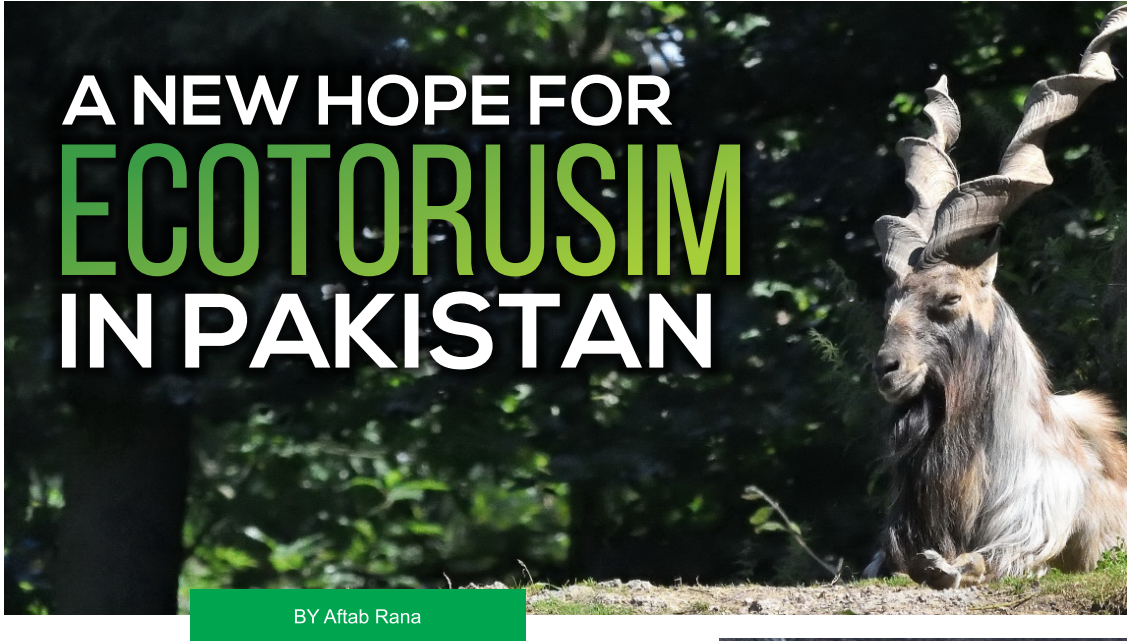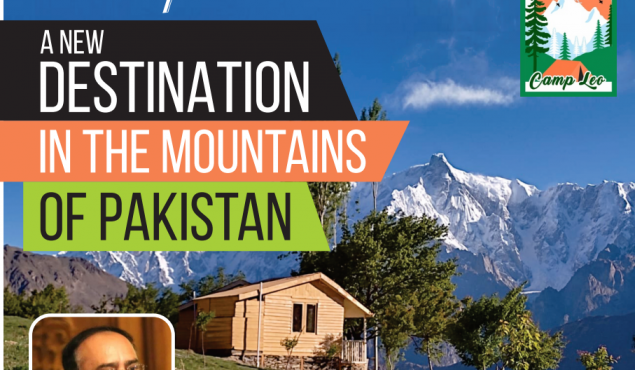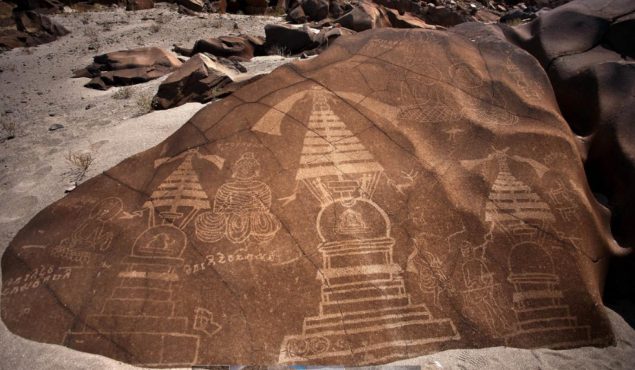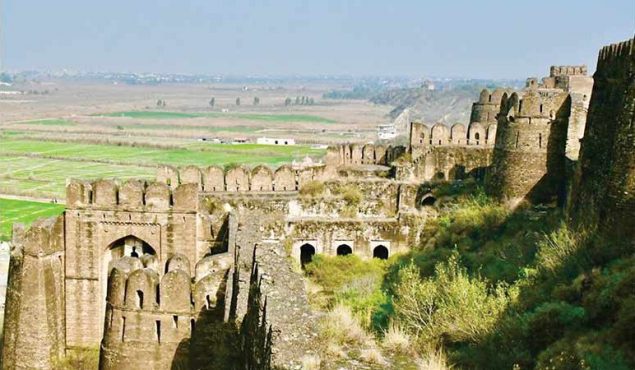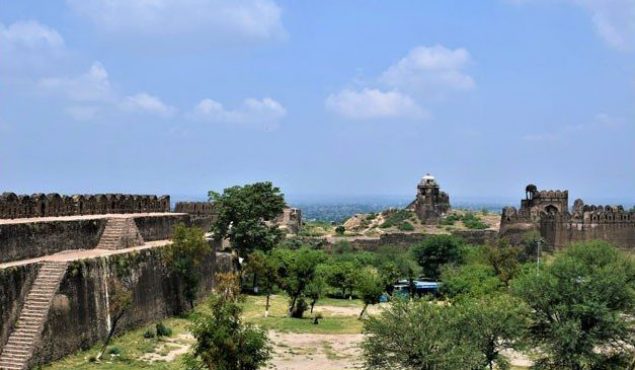SUSTAINABLE TOURISM FOUNDATION PAKISTAN
Pakistan has great opportunities for the tourism development based on its spectacular natural landscapes and unique cultural heritage. Tourism is one of those economic activities that have the potential to bring considerable benefits to the nation. If it is managed effectively, tourism can be used as a vehicle to deliver socio-economic benefits directly to rural and remote areas.
To guard against past mistakes and to help promote best practice in the future, it is important to recognize the need for partnership and cooperation for the development of sustainable tourism in Pakistan. All stakeholders should join hands to adopt the internationally recognized nature and culture friendly practices to insure the sustainable development of tourism sector in coming years.
The Sustainable Tourism Foundation Pakistan (STFP) has been formed as a national body by a group of eminent professionals from the tourism industry as well as environmentalists as a non-profit and non-political organization to promote environmentally responsible and sustainable tourism in Pakistan. The Foundation is registered under the Societies Registration Act XXI, 1860.
STFP is working closely with federal and provincial governments agencies responsible for the promotion of tourism as well as it has established networking with private sector organizations and other like-minded national, regional and international organizations to facilitate and support synergy of policies, initiatives and activities at local, regional and national level.
Our work
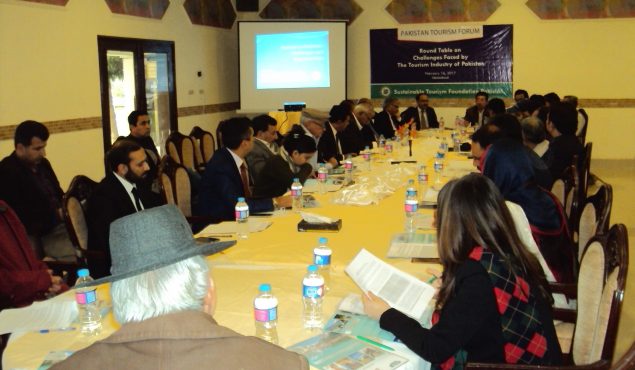
Pakistan Tourism Forum (PTF)
Pakistan is blessed with natural beauty, cultural diversity and rich historical background. In spite of being blessed with a full range of tourism attractions, so far we have not been fully successful in exploiting this potential.
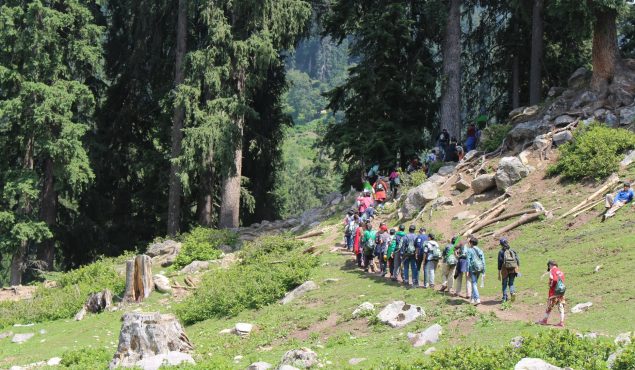
Green Trekking Campaign
The northern territories of Pakistan are renowned for their natural beauty and attractive mountain landscape. It is the meeting places of great mountain ranges of the Himalayas, the Karakorums, Hindukush and Pamir. Because of its unmatched beauty of natural landscape, it is known as a paradise for trekkers and adventure tourists.
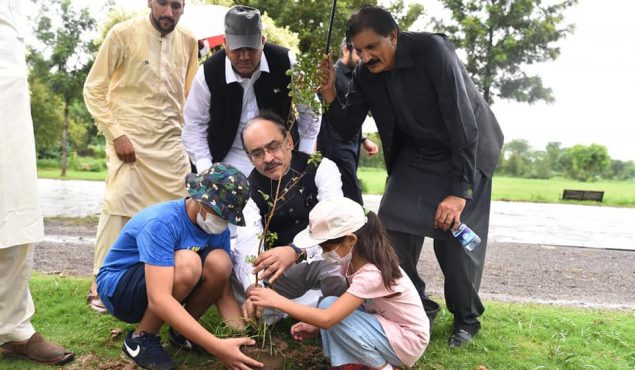
Mission Green Pakistan – Clean Pakistan
The Mission of our Green Pakistan – Clean Pakistan Campaign is to make Pakistan a green and clean country for its citizens and an attractive tourist destination for its visitors. Pakistan’s tree cover is decreasing at an alarming rate — massive deforestation started in the 1990s as remote areas opened up with the construction of roads, and it has not ceased.

Indus Dolphin Ecotourism Project
Sustainable Tourism Foundation Pakistan has launched a project with the help of NRSP-USAID Small Grants and Ambassador’s Fund Program for seeking fishermen community and general public support for the conservation of unique Indus Blind Dolphin.
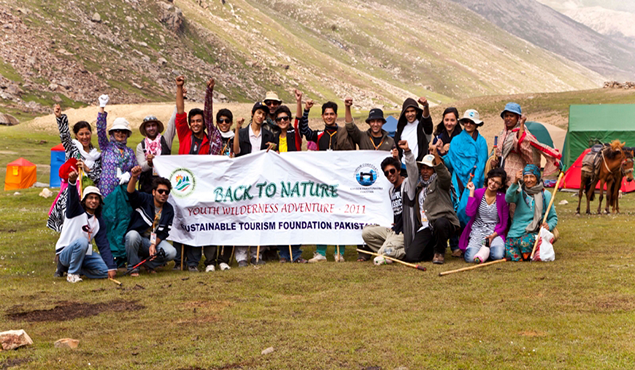
Back to Nature – Youth Environment Leadership Program
Back to Nature - NYELPis a national environment leadership program for young people aimed at providing them with both leadership training, and unique learning opportunities not available at home or in the classroom.
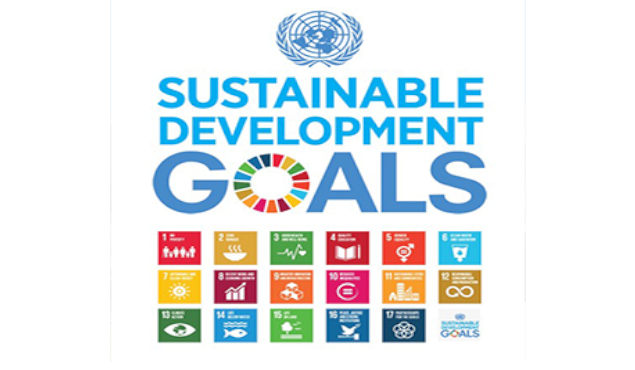
Tourism and SGDs
During the 70th Session of the General Assembly of the United Nations, a record of 154 heads of state or government gathered at the UN Sustainable Development Summit in New York from 25-27 September 2015 to formally adopt the bold and ambitious 2030 Agenda for Sustainable Development
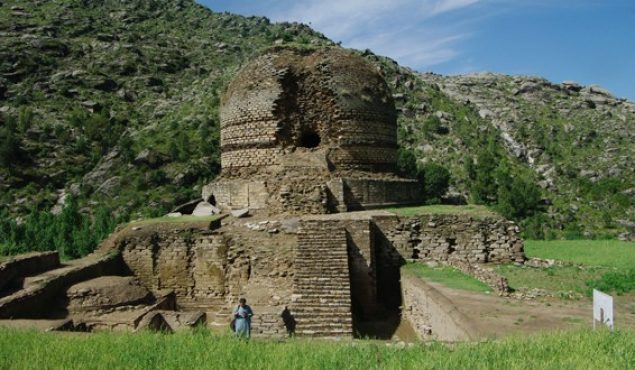
Promotion of Sustainable Archeological Tourism in Swat Valley
In pursuance to its objectives to promote archaeological tourism in the country, Sustainable Tourism Foundation Pakistan in collaboration with Tourism Corporation of Khyber Pakhtunkhwa (TCKP) and Italian Archaeological Mission’s ACT Project has launched a project to promote sustainable archaeological tourism by promoting cultural and archaeological heritage sites of Pakistan.
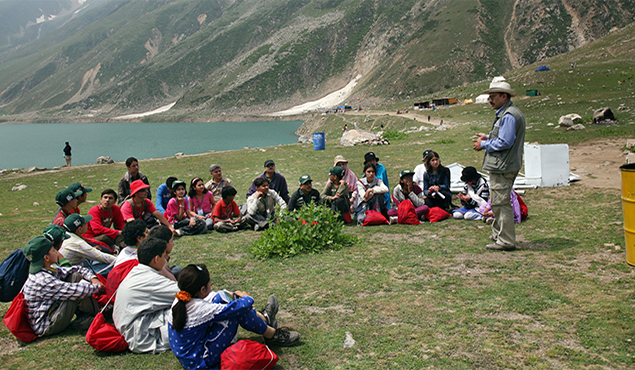
Summer Nature Study Camp for Kids
The Environmental Education Wing of STFP provides exciting & educational adventure outings for young students of all ages, backgrounds, and experience levels. Our “Back to Nature- School Summer Nature Study Camp focuses on providing leadership training & learning opportunities that are not available in the classroom or at home. .
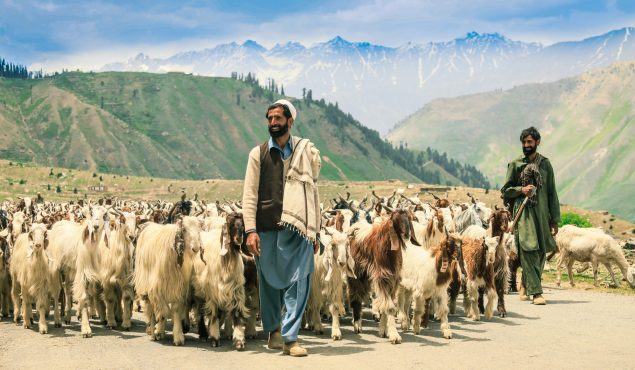
Promotion of Pro-Poor Tourism
Tourism is often claimed to be the largest industry in the world, thus creates both opportunities and responsibilities. Tourism can bring great benefits to the local communities but only if it brings sustainable livelihoods, employment or additional incomes.
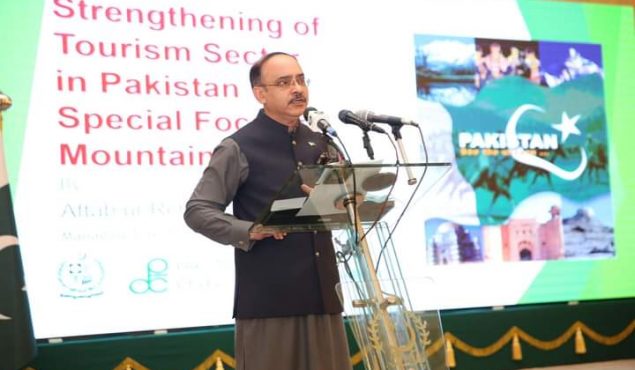
Sustainable Tourism Network
One of the main objects of STFP is to create awareness and share information with the general public and industry stakeholders about the best practices of sustainable tourism, ecotourism, pro-poor tourism and other forms of responsible tourism.
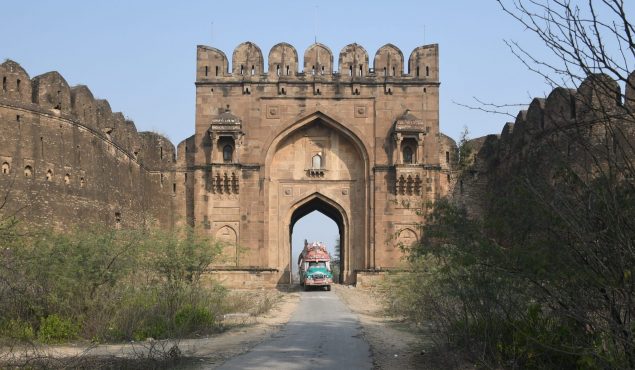
Promotion of Community based Heritage Tourism at Rohtas Fort
UNESCO Convention on World Heritage asks for giving heritage a function in the lives of people and enhance the role of community in management and protection of heritage sites through awareness raising and developing economic stakes.
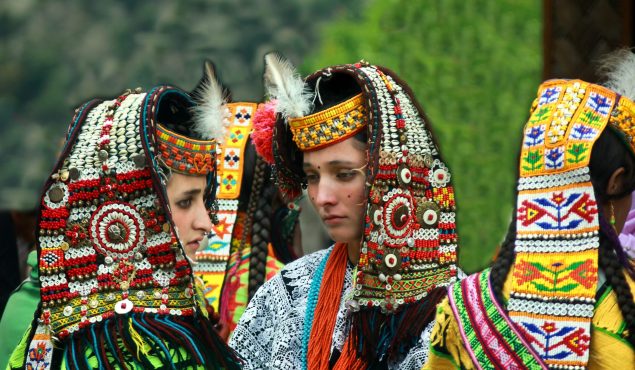
Promotion of Responsible Tourism in Kalasha Valleys
Funded by SDC and supported UNESCO Pakistan and Government of Khyber Pakhtunkhwa, the project “Strengthening the Resilience of Kalasha Communities through Protection and Promotion of their Cultural Heritage” was implemented by STFP during 2019 and 2020.
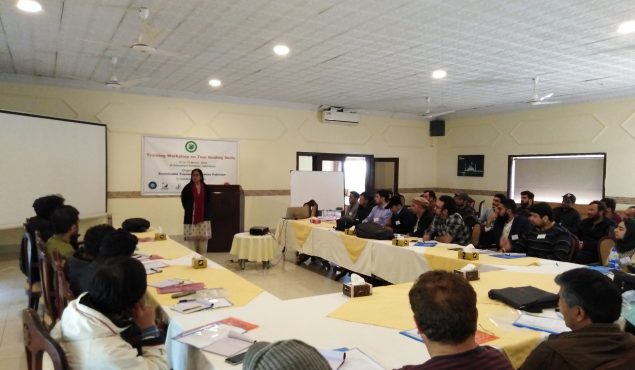
Capacity Building of Tour Guides
In Pakistan, there is serious shortage of trained tour guides. In order to fill the gap of trained tour guides and to improve the standards of tour operation services, Sustainable Tourism Foundation Pakistan (STFP) annually organize two Tour Guides Training Programs.
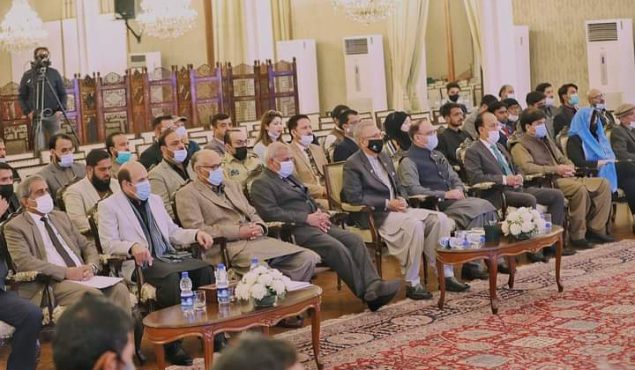
Pakistan Tourism Forum (PTF)
STFP’s Pakistan Tourism Forum (PTF) acts as a National Think Tank on Tourism in Pakistan and provides advice and expert opinion to policy makers and major stakeholders on the sustainable development of tourism in Pakistan.
featured videos
Latest Articles & blogs
Our Mission
Our mission is to promote and facilitate the growth of sustainable and equitable tourism in Pakistan in close partnership with concerned stakeholders from the public, private and non-profit sectors.
